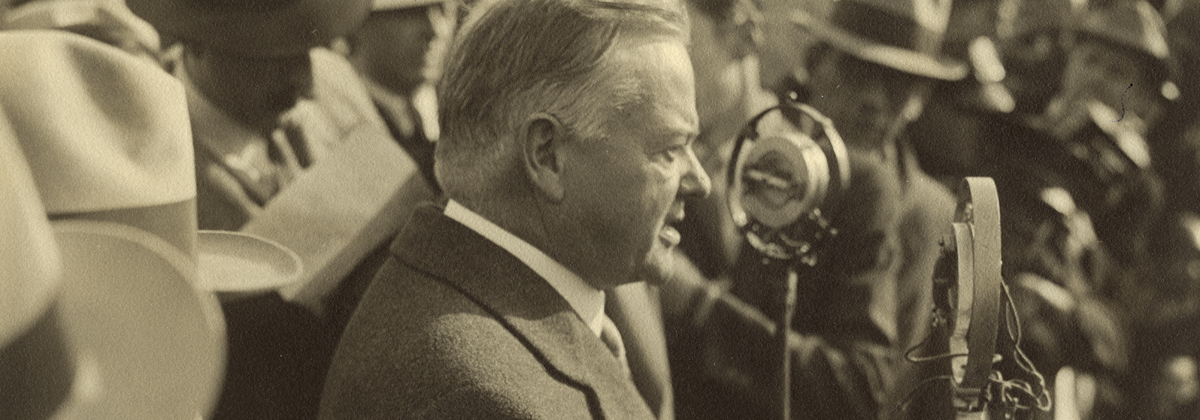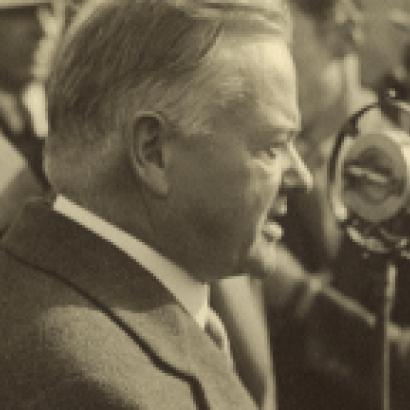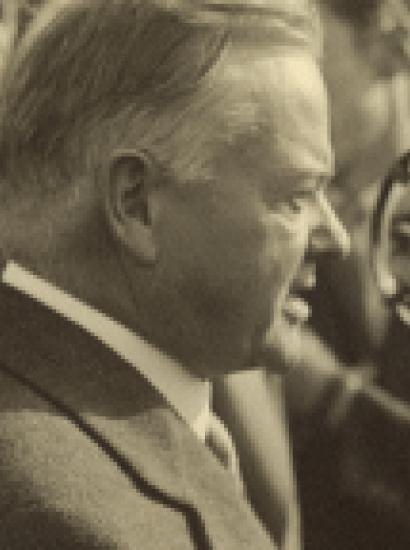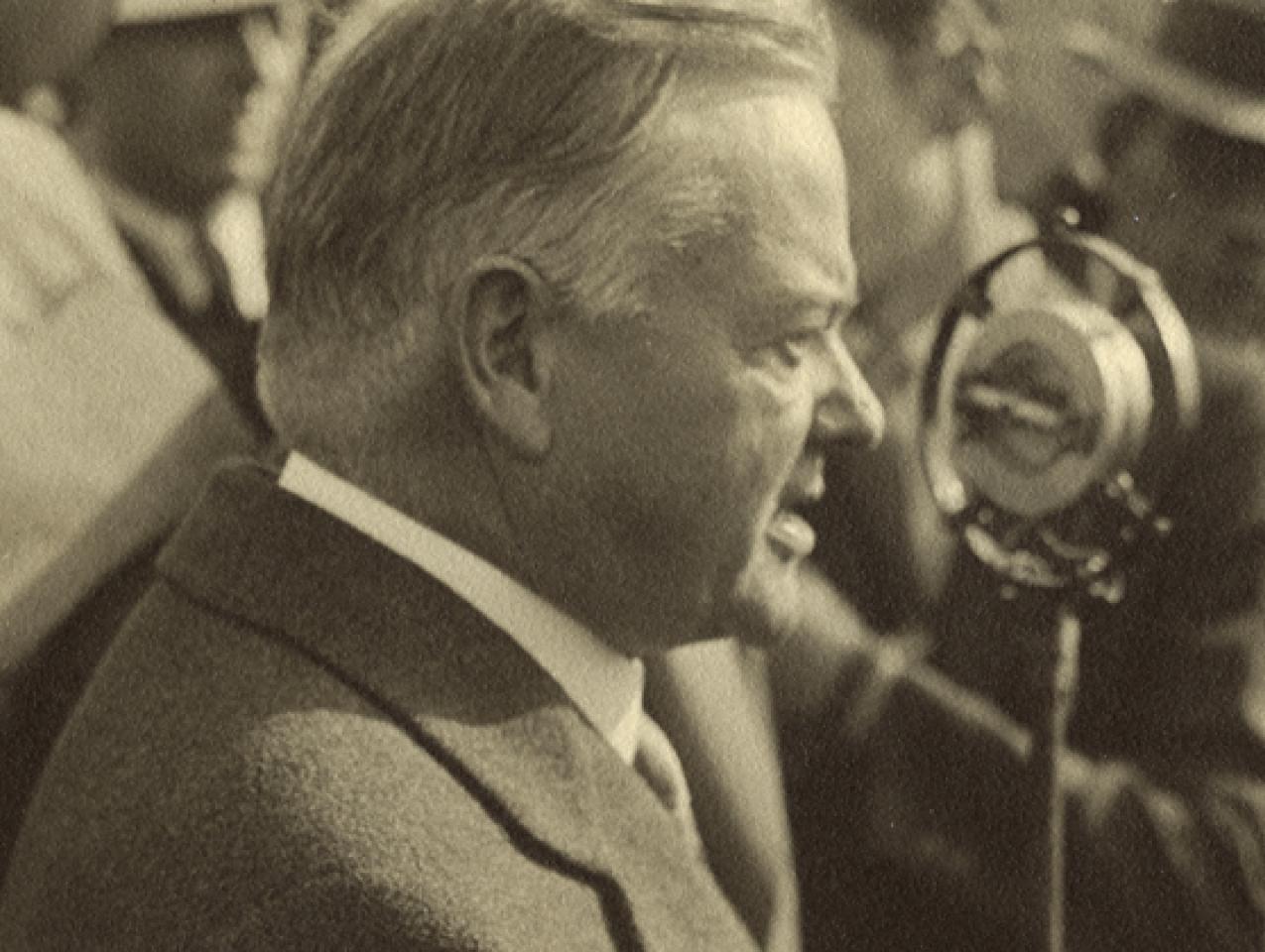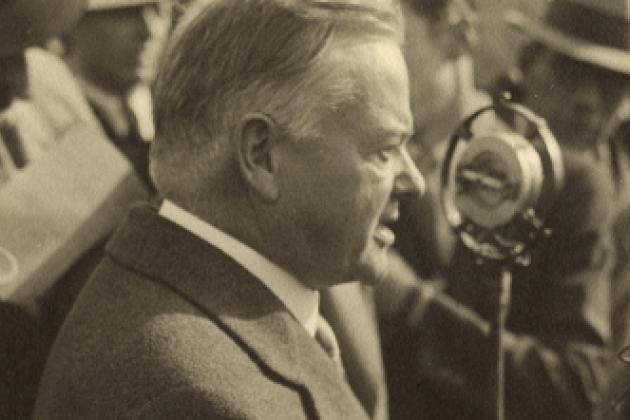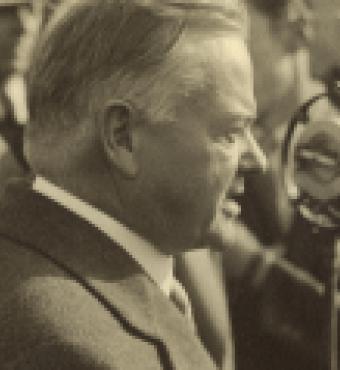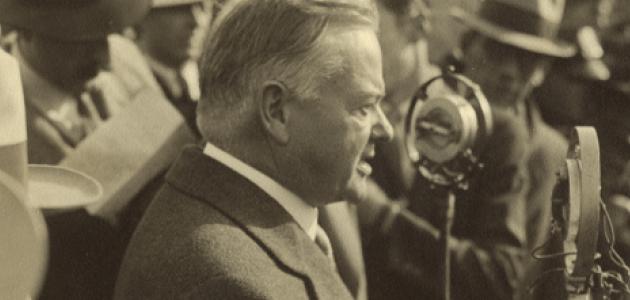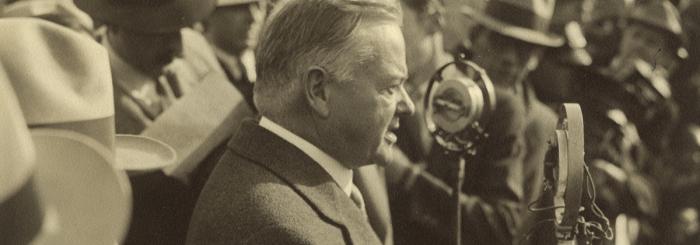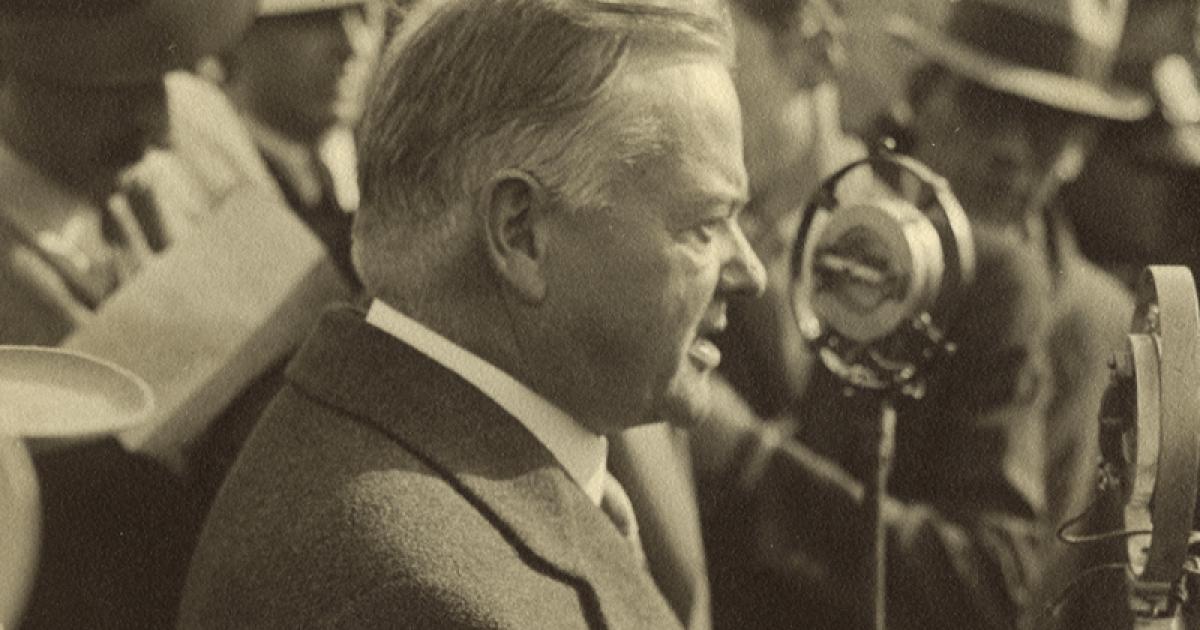- History
Editor’s note: In 1921, then secretary of commerce Herbert Hoover decided to distill from his experiences a coherent understanding of the American experiment he cherished. The result was the 1922 book American Individualism, which has recently been reissued by Hoover Press. An excerpt of the book appears below.
Individualism has been the primary force of American civilization for three centuries. It is our sort of individualism that has supplied the motivation of America’s political, economic, and spiritual institutions in all these years. It has proved its ability to develop its institutions with the changing scene. Our very form of government is the product of the individualism of our people, the demand for an equal opportunity, for a fair chance.
The American pioneer is the epic expression of that individualism, and the pioneer spirit is the response to the challenge of opportunity, to the challenge of nature, to the challenge of life, to the call of the frontier. That spirit need never die for lack of something for it to achieve. There will always be a frontier to conquer or to hold as long as men think, plan, and dare. Our American individualism has received much of its character from our contacts with the forces of nature on a new continent. It evolved government without official emissaries to show the way; it plowed and sowed two score of great states; it built roads, bridges, railways, cities; it carried forward every attribute of high civilization over a continent. The days of the pioneer are not over. There are continents of human welfare of which we have penetrated only the coastal plain. The great continent of science is as yet explored only on its borders, and it is only the pioneer who will penetrate the frontier in the quest for new worlds to conquer. The very genius of our institutions has been given to them by the pioneer spirit. Our individualism is rooted in our very nature. It is based on conviction born of experience. Equal opportunity, the demand for a fair chance, became the formula of American individualism because it is the method of American achievement.
After the absorption of the great plains of the West came the era of industrial development with the new complex of forces that it has brought us. Now haltingly, but with more surety and precision than ever before and with a more conscious understanding of our mission, we are finding solution of these problems arising from new conditions, for the forces of our social system can compass and comprise these.
Our individualism is no middle ground between autocracy—whether of birth, economic or class origin—and socialism. Socialism of different varieties may have something to recommend it as an intellectual stop-look-and-listen sign, more especially for Old World societies. But it contains only destruction to the forces that make progress in our social system. Nor does salvation come by any device for concentration of power, whether political or economic, for both are equally reversions to Old World autocracy in new garments.
Salvation will not come to us out of the wreckage of individualism. What we need today is steady devotion to a better, brighter, broader individualism—an individualism that carries increasing responsibility and service to our fellows. Our need is not for a way out but for a way forward. We found our way out three centuries ago when our forefathers left Europe for these shores, to set up here a commonwealth conceived in liberty and dedicated to the development of individuality.
There are malign social forces other than our failures that would destroy our progress. There are the equal dangers both of reaction and radicalism. The perpetual howl of radicalism is that it is the sole voice of liberalism—that devotion to social progress is its field alone. These men would assume that all reform and human advance must come through government. They have forgotten that progress must come from the steady lift of the individual and that the measure of national idealism and progress is the quality of idealism in the individual. The most trying support of radicalism comes from the timid or dishonest minds that shrink from facing the result of radicalism itself but are devoted to defense of radicalism as proof of a liberal mind. Most theorists who denounce our individualism as a social basis seem to have a passion for ignorance of its constructive ideals.
An even greater danger is the destructive criticism of minds too weak or too partisan to harbor constructive ideas. For such, criticism is based upon the distortion of perspective or cunning misrepresentation. There is never danger from the radical himself until the structure and confidence of society has been undermined by the enthronement of destructive criticism. Destructive criticism can certainly lead to revolution unless there are those willing to withstand the malice that flows in return from refutation. It has been well said that revolution is no summer thunderstorm clearing the atmosphere. In modern society it is a tornado leaving in its path the destroyed homes of millions with their dead women and children.
There are also those who insist that the future must be a repetition of the past; that ideas are dangerous, that ideals are freaks. To find that fine balance which links the future with the past, whose vision is of men and not of tools, that possesses the courage to construct rather than to criticize—this is our need. There is no oratory so easy, no writing so trenchant and vivid as the phrasemaking of criticism and malice—there is none so difficult as inspiration to construction.
We cannot ever afford to rest at ease in the comfortable assumption that right ideas always prevail by some virtue of their own. In the long run they do. But there can be and there have been periods of centuries when the world slumped back toward darkness merely because great masses of men became impregnated with wrong ideas and wrong social philosophies. The declines of civilization have been born of wrong ideas. Most of the wars of the world, including the recent one, have been fought by the advocates of contrasting ideas of social philosophy.
The primary safeguard of American individualism is an understanding of it; of faith that it is the most precious possession of American civilization, and a willingness courageously to test every process of national life upon the touchstone of this basic social premise. Development of the human institutions and of science and of industry have been long chains of trial and error. Our public relations to them and to other phases of our national life can be advanced in no other way than by a willingness to experiment in the remedy of our social faults. The failures and unsolved problems of economic and social life can be corrected; they can be solved within our social theme and under no other system. The solution is a matter of will to find solution; of a sense of duty as well as of a sense of right and citizenship. No one who buys “bootleg” whiskey can complain of gunmen and hoodlumism.
Humanity has a long road to perfection, but we of America can make sure progress if we will preserve our individualism, if we will preserve and stimulate the initiative of our people, if we will build up our insistence and safeguards to equality of opportunity, if we will glorify service as a part of our national character. Progress will march if we hold an abiding faith in the intelligence, the initiative, the character, the courage, and the divine touch in the individual. We can safeguard these ends if we give to each individual that opportunity for which the spirit of America stands. We can make a social system as perfect as our generation merits and one that will be received in gratitude by our children.







